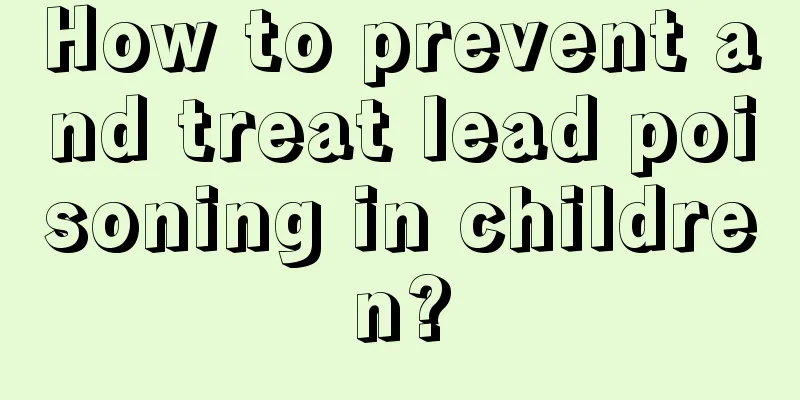What are the treatment guidelines for Pseudomonas aeruginosa?

|
Pseudomonas aeruginosa is a treatment issue that patients need to pay more attention to, because the impact of not getting effective treatment will be more serious. Common symptoms are abdominal distension, hallucinations, and fainting, and the infection is limited to the fingertips. Patients may also develop armored prolapse or external otitis if they come into contact with water. Therefore, treatment should pay attention to keeping the local area clean, removing necrotic tissue, and using some antibiotics. Clinical manifestations Skin infections can be of several types: 1. Gangrenosum impetigo Also known as gangrenous ecthyma, it is common in patients with leukemia, severe burns, tri-lineage cell reduction, advanced cancer or certain serious wasting diseases. The clinical features are clusters of blisters surrounded by a purple-red halo. The contents of the blisters quickly become hemorrhagic and rupture to form round ulcers with a black necrotic crust in the center. The damage mainly occurs in the limbs and buttocks. It can cause Pseudomonas aeruginosa sepsis and cellulitis, and may present with maculopapular rash, plaques, and crusts. Severe cases may be accompanied by fever, thirst, abdominal distension, hallucinations and syncope. Gram-positive bacilli were detected in the blisters and Pseudomonas aeruginosa was found in blood culture. 2. Green nail syndrome The infection is confined to the fingertips and is clinically characterized by nail stripping. The nail stripping area appears light green, and paronychia may occur if the patient comes into contact with water. 3. Otitis externa Pseudomonas aeruginosa infection is confined to the external auditory canal and accounts for approximately 70% of external otitis, manifesting as swelling, maceration, and pain in the external auditory canal. diagnosis According to the clinical characteristics of skin lesions and histopathology: epidermal cells have liquefaction degeneration and nuclear pyknosis. Capillary dilation and edema were observed in the dermis, and a large number of bacteria were seen invading between the collagen fiber bundles. It can be diagnosed. treat 1. Use polymyxin B or polymyxin E, neomycin, gentamicin, etc. 2. Keep the area clean, remove necrotic tissue, and use the above-mentioned antibiotic ointment. 3. For the green nail syndrome type, in addition to systemic treatment, the area should be rinsed locally with 0.1% polymyxin B solution and applied with 1% acetic acid solution. 4. When balanitis has a lot of exudate, apply zinc-copper liquid wet compress locally. When the exudate is less, sensitive antibiotic emulsion can be used. Patients should not be blind when it comes to the treatment of Pseudomonas aeruginosa, because they need to decide the treatment method based on their symptoms. Therefore, it is recommended that when this problem occurs, they should follow the doctor's treatment advice to reduce the Pseudomonas aeruginosa infection as much as possible and reduce the adverse harm to their health. |
<<: What foods can a one-year-old baby with anemia eat?
>>: What are the symptoms of Pseudomonas aeruginosa infection?
Recommend
What to do if red pimples appear on the back
Some people have allergic constitutions, especial...
How long will it take for a baby to recover from teething diarrhea?
If a baby has diarrhea when he is teething, it wi...
Causes of hair loss in newborns
Anyway, after giving birth, young mothers are ver...
What are the clinical manifestations of craniosynostosis?
Craniosynostosis is a common growth and developme...
What does a baby’s anus rot have to do with? How to take care of it properly
Some children are prone to eczema and erosion in ...
What foods can stimulate children’s appetite?
Nowadays, children are spoiled from a young age. ...
How to judge the symptoms of baby coughing during sleep at night
Many parents will find that their babies often co...
Can a nine month old baby eat bananas?
Banana is a very common fruit. Banana is a nutrit...
What are the symptoms of mild hand, foot and mouth disease?
The incidence of hand, foot and mouth disease has...
Is it okay for a seven-month-old baby to fall off the bed?
Babies who are too young have uncoordinated limb ...
Treatment for baby shaking head before sleeping
Nowadays, it is not uncommon to see babies shakin...
Introduction to the characteristics of boys entering puberty
The arrival of puberty means that children begin ...
Why does my baby have white hair?
Nowadays, many teenagers have gray hair due to ac...
What is the reason why newborn babies always spit up milk?
Spitting up in newborns is a very common conditio...
What are the dangers of enlarged tonsils in children?
Enlarged tonsils are very common in our lives, es...









